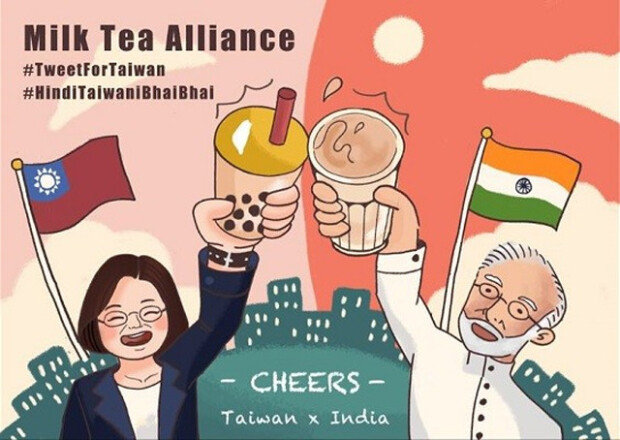The Milk Tea Alliance
The Milk Tea Alliance
Posted September. 09, 2020 07:39,
Updated September. 09, 2020 07:39


The Milk Tea Alliance was formed this year among young protestors in Hong Kong, Taiwan, and Thailand who share the anti-autocracy and anti-Chinese sentiment. The name came from the fact that all three countries enjoy milk tea. Many protestors post pictures of themselves toasting with a cup of milk tea on social media.
China is increasingly becoming the target of the Milk Tea Alliance. While Thais are showing support to anti-Chinese protests in Taiwan and Hong Kong, the Philippines in conflict with China regarding the South China Sea and India in a border dispute with the country are also joining the Milk Tea Alliance. China is becoming warier of the recent development. “Those who support the independence of Hong Kong and Taiwan are colluding with each other online. However, it won’t be successful,” said a member of the Chinese Foreign Affairs Ministry.
The anti-Chinese sentiment is rapidly expanding in the international community this year, largely because Wuhan in China was pointed as the source of COVID-19. The fact that the World Health Organization’s investigation team has not visited Wuhan so far despite the Chinese government’s acceptance of the organization’s investigation is causing controversy. In addition, the Western countries have introduced economic sanctions against China in opposition to the country’s forced passage of the Hong Kong national security law in late May. Moreover, there are serious concerns about the grave infringement of Hong Kong pro-democracy figures’ right to life and property.
China is taking the growing anti-Chinese sentiment seriously. “The anti-Chinese sentiment caused by COVID-19 may become even more severe than when the 1989 Tiananmen Square protests took place,” read a report delivered to the Chinese senior leadership by the China Institutes of Contemporary International Relations, a think tank under the Ministry of State Security. “The anti-Chinese sentiment may cause resistance to the Belt and Road Initiative of China.”
The Chinese Communist Party will celebrate its 100th anniversary next year. The country will celebrate the completion of "xiaokang," which means a moderately prosperous society, but it won’t be met with warm reactions outside the country due to the strong anti-Chinese sentiment. In addition, concerns in China’s neighboring countries are growing as China holds an ambition to build New China comparable to the U.S. by 2049, the 100th anniversary of the foundation of the People's Republic of China.
“The Chinese people will not tolerate any attempt to distort and belittle the Chinese Communist Party’s history,” Chinese President Xi Jinping openly warned at a round-table talk to celebrate the 75th anniversary of China's victory over Japanese aggression. The comment seems to have targeted Washington amid growing tensions between the U.S. and China, but it also can be interpreted as a warning against anybody who challenges China’s hegemony. However, relations with other sovereign countries cannot be oppressed with force alone. China should be aware that such an approach will only strengthen the anti-Chinese alliance.
Headline News
- N. Korea launches cyberattacks on S. Korea's defense companies
- Major university hospital professors consider a day off each week
- Italy suffers from fiscal deficits from ‘Super Bonus’ scheme
- Inter Milan secures 20th Serie A title, surpassing AC Milan
- Ruling and opposition prioritize spending amid tax revenue shortfalls







